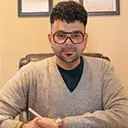Stress is more than just a mental strain; it can physically impact your body in numerous ways, including your hair. Understanding the relationship between stress and hair loss is crucial for effectively addressing and managing this issue. Stress can trigger a range of reactions, from physiological changes to emotional and cognitive effects. Hair loss is one of these effects. So here we will guide you through the detailed analysis of how stress specifically impacts hair health compared to other factors.
What is stress?
Stress is a complex physiological and psychological response that occurs when an individual faces demands or pressures that exceed their ability to cope. Both external factors, such as work pressure or personal challenges, and internal factors, like negative thought patterns or self-imposed expectations, can trigger this response.
When the body perceives a stressor, it activates the “fight or flight” response, releasing hormones like cortisol and adrenaline. These hormones prepare the body to deal with immediate threats by increasing heart rate, blood pressure, and energy levels. While this response can be beneficial in short bursts, chronic stress can lead to various physical and mental health issues, including impaired immune function, disrupted sleep, and anxiety. Understanding stress helps in recognizing its effects on both the mind and body, enabling more effective management strategies.
Understanding Stress Induced Hair Loss
Stress induced hair loss is a condition where psychological stress leads to hair shedding or thinning. This type of hair loss can manifest in several forms, including Telogen Effluvium, where hair falls out prematurely during the resting phase; Alopecia Areata, an autoimmune response triggered by stress; and Trichotillomania, a compulsive behavior resulting in hair pulling.
Types of Hair Loss Linked to Stress
- Telogen Effluvium: This occurs when a significant amount of hair follicles enter the resting phase simultaneously, leading to noticeable hair shedding.
- Alopecia Areata: Stress can trigger this condition, causing round patches of hair loss.
- Trichotillomania: A psychological condition where stress drives individuals to pull out their hair.
How Stress Affects Hair Growth
The Biological Mechanism
When you experience stress, your body produces increased levels of cortisol, a hormone that can disrupt average hair growth. Increased cortisol levels can cause hair follicles to enter the telogen (resting) phase prematurely, which results in hair loss. This hormonal imbalance impedes the hair’s ability to grow and regenerate properly.
Impact on Hair Growth Cycle
The hair growth cycle includes three stages: anagen (growth), catagen (transitional), and telogen (resting). Stress can disturb this cycle by forcing more hair follicles into the telogen phase, leading to excessive hair shedding and slower regrowth.
Symptoms of Stress Related Hair Loss
Visible Symptoms
- Thinning Hair: Gradual loss of hair density, often noticeable at the crown or part lines.
- Increased Shedding: More hair falling out during brushing or washing.
- Bald Patches: Circular or irregular areas of complete hair loss.
Physical and Emotional Symptoms
- Physical: Headaches, muscle tension, and fatigue often accompany stress-related hair loss.
- Emotional: Anxiety, depression, and irritability may also be present, exacerbating the stress and hair loss cycle.
Identifying the Root Causes of Stress
Common Stress Triggers
Identifying the sources of stress is essential for managing hair loss. Common triggers include:
- Work Pressure: High-stress work environments can contribute significantly to hair loss.
- Personal Issues: Relationship problems, financial troubles, and other personal stressors.
- Health Concerns: Chronic illness or major health issues can also be a source of stress.
How to Assess Your Stress Levels
Evaluate your stress through self-assessment tools, journaling your stressors, or seeking professional counseling. Understanding your stress levels can help you identify appropriate interventions to manage both stress and hair loss.
Diagnostic Methods for Stress Induced Hair Loss
Consulting with a Dermatologist
A dermatologist can provide a comprehensive evaluation to determine if stress is the primary cause of hair loss. They can differentiate between stress induced hair loss and other types of alopecia.
Diagnostic Tests
- Blood Tests: To check for hormone imbalances or deficiencies.
- Scalp Examination: To assess the health of your scalp and hair follicles.
Effective Treatment and Management Strategies
Lifestyle Changes
Adopting stress management techniques is crucial. Consider:
- Meditation: Helps calm the mind and reduce stress.
- Exercise: Regular physical activity releases endorphins, which can alleviate stress.
- Counseling: Professional therapy can provide strategies to manage stress and emotional health.
Diet and Nutrition
Incorporate a balanced diet rich in:
- Vitamins: A, B, C, and E, which are essential for hair health.
- Minerals: Iron, zinc, and magnesium support hair growth and overall health.
- Antioxidants: Protect hair follicles from damage.
Hair Care Practices
Maintain a healthy hair care routine:
- Gentle Washing: Steer clear of harsh shampoos and avoid washing your hair too often.
- Conditioning: Opt for conditioners that help strengthen and nourish your hair.
- Avoid Heat Styling: Limit the use of heat styling tools to prevent damage.
Medical Treatments
If lifestyle and dietary changes are insufficient, consider:
- Medications: Topical treatments or medications prescribed by a healthcare professional.
- Therapies: Platelet-rich plasma (PRP) therapy or other medical interventions.
Prevention Tips for Stress Related Hair Loss
Stress Reduction Techniques
Implement daily practices to manage stress effectively:
- Mindfulness: Practice mindfulness meditation to stay grounded.
- Relaxation Techniques: Engage in activities like yoga or deep-breathing exercises.
Regular Scalp Care
Maintain a healthy scalp environment:
- Regular Cleansing: Keep your scalp clean to avoid buildup.
- Scalp Massages: Promote blood circulation and hair health.
Routine Health Check-ups
Regular visits to healthcare providers can help monitor and manage overall health, reducing the risk of stress related hair loss.
Real-Life Experiences and Testimonials
Case Studies
Learn from individuals who have overcome stress induced hair loss by implementing lifestyle changes, seeking professional help, and addressing their stressors.
Expert Opinions
Dermatologists and mental health professionals provide valuable insights into managing stress and hair loss effectively.
Conclusion
Understanding the connection between stress and hair loss is essential for effective management. By addressing the root causes of stress, adopting healthy lifestyle practices, and seeking professional help, you can take proactive steps to mitigate hair loss and promote overall well-being.








